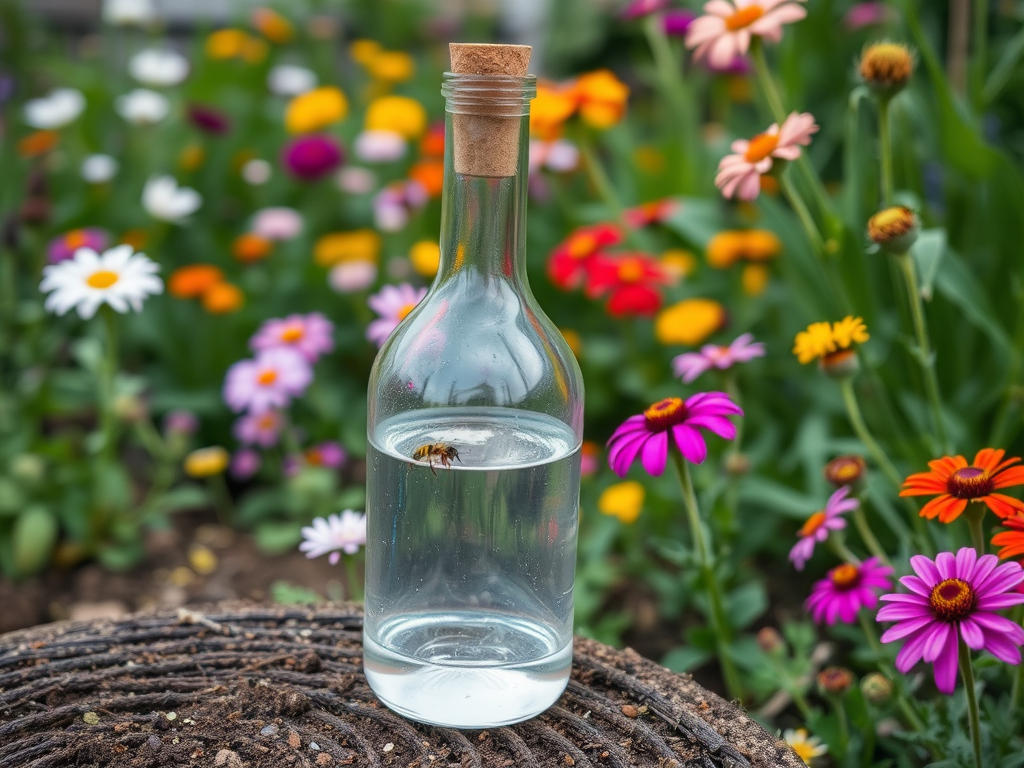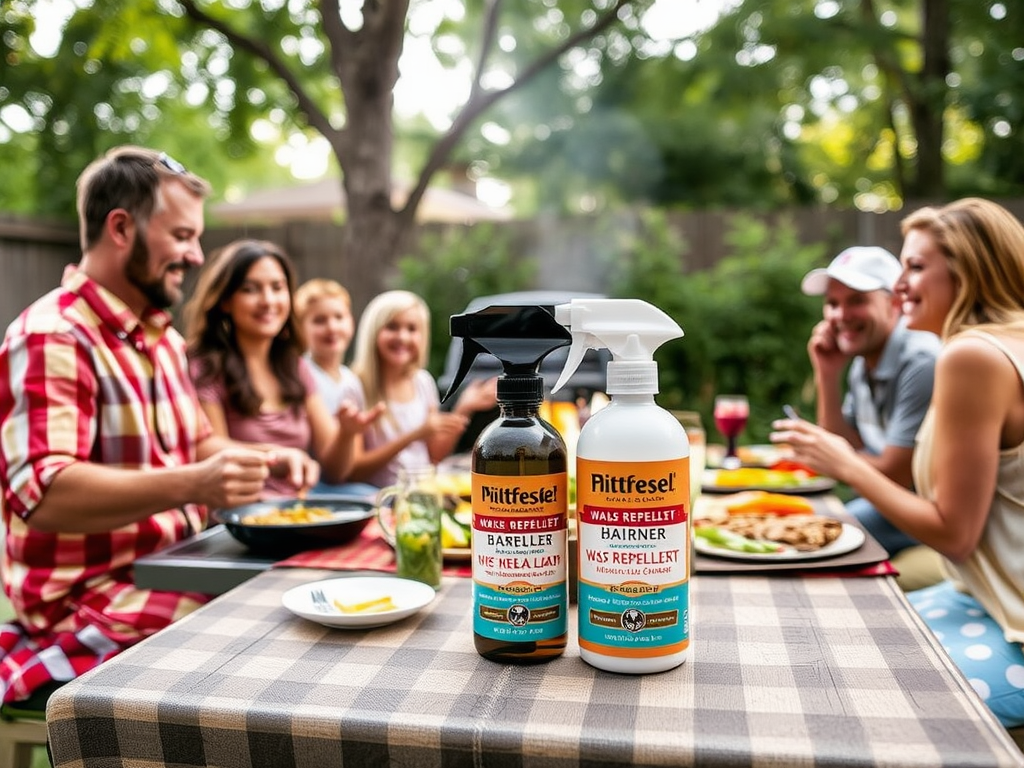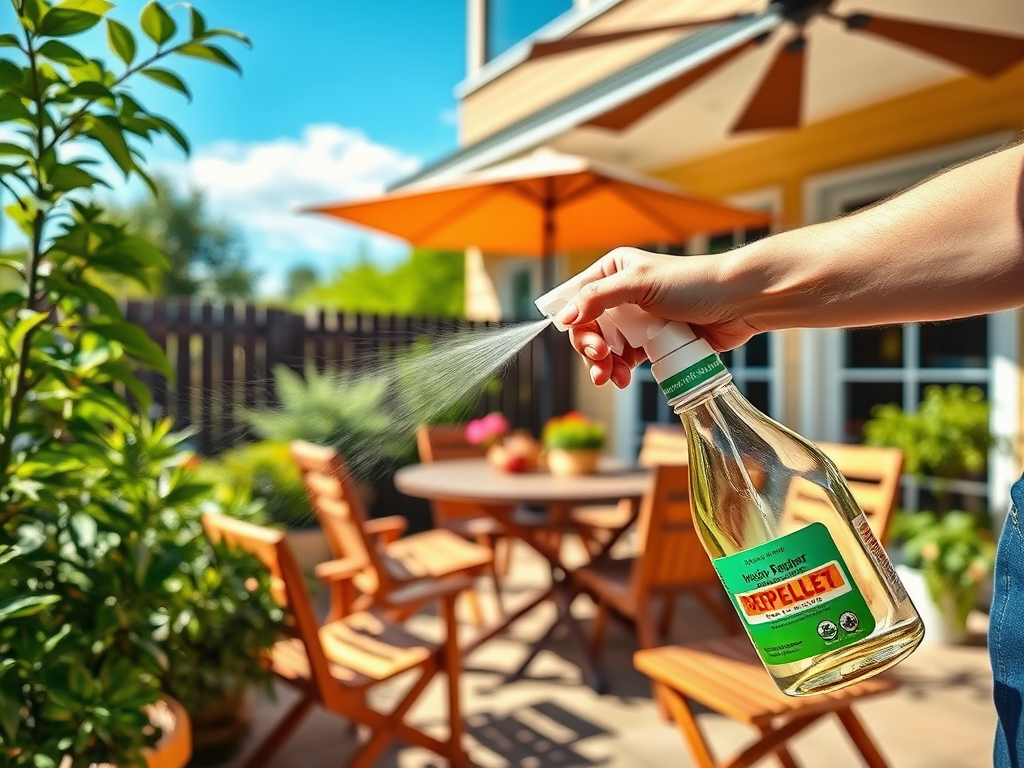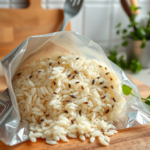As the warm weather beckons us outdoors, our backyards transform into vibrant spaces filled with laughter, family gatherings, and barbecues. However, the uninvited guests, namely wasps, can spoil our outdoor enjoyment. These insects can be quite territorial and aggressive, especially when they feel their nests are threatened. Instead of reaching for toxic chemicals that can harm the environment and beneficial creatures, natural wasp repellent solutions offer a safe and effective alternative. By harnessing everyday ingredients and understanding wasps’ behavioral patterns, you can reclaim your backyard without the risks associated with chemical repellents. This comprehensive guide delves into natural solutions that keep wasps at bay, allowing you to savor those summer moments in peace.
Understanding Wasps and Their Behavior

To effectively manage wasps, it’s crucial to understand what draws them and when they become a problem. These insects are attracted to food sources, particularly sweet or protein-based options. Moreover, their nesting habits include building nests in sheltered areas like eaves and trees. Wasps are typically more aggressive when protecting their nests, making it vital to address any wasp problems gently and wisely. Their role in the ecosystem as pollinators and pest controllers often goes overlooked; thus, a balance is necessary. Understanding this behavioral aspect can help you devise a strategy that respects both your needs and those of the wasps.
Why Choose Natural Solutions?

Embracing natural wasp repellents is not just about efficacy; it’s also about promoting ecological health. Traditional chemical repellents can lead to unintended consequences, including harmful effects on beneficial insects and local wildlife. Natural alternatives, on the other hand, can effectively deter wasps without the associated toxicity. Many natural solutions are also readily available in your home, making them convenient and economical. Choosing these alternatives supports a sustainable lifestyle while ensuring your backyard remains a safe haven for family and friends. Plus, it brings peace of mind knowing you are caring for the environment.
Common Natural Wasp Repellents
Several natural substances serve as effective wasp repellents. Utilizing these options can help you prevent wasps from invading your outdoor space. Here are some popular choices:
- Essential Oils: Peppermint oil and clove oil are particularly potent. Their strong scents mask appealing odors that attract wasps.
- Vinegar: Not just for cooking, vinegar’s sharp smell can help deter wasps from specific areas.
- Spices: Common kitchen spices like cinnamon can create an environment that wasps find unpleasing.
Many people are surprised to discover how easily these natural ingredients can be integrated into their wasp control strategies. Below is a simple table showcasing these common natural repellents along with their attributes:
| Natural Repellent | Effectiveness | Usage Method |
|---|---|---|
| Peppermint Oil | Very Effective | Spray diluted solution |
| Vinegar | Effective | Use as bait in traps or spray diluted |
| Cinnamon | Moderately Effective | Sprinkle in areas frequently visited by wasps |
DIY Natural Wasp Repellent Recipes
If you’d like to take matters into your own hands, consider creating your own natural repellent using common ingredients. Here are some easy-to-make recipes:
- Essential Oil Spray: Combine water with a few drops of peppermint and clove oil in a spray bottle. Shake thoroughly before spraying around your outdoor areas to effectively deter wasps.
- Vinegar Trap: Mix equal parts vinegar and sugar water in a container. This concoction attracts wasps, offering a simple way to keep their populations down.
Creating a Wasps-Resistant Backyard
Beyond repellents, proactive measures can significantly reduce the likelihood of wasps establishing a presence in your backyard. Strategic lifestyle changes can make a considerable difference. Consider the following strategies:
- Keep Food and Drinks Covered: Always cover outdoor meals to avoid attracting wasps with sweet or protein-rich foods.
- Seal Garbage Cans: Make sure your trash bins are tightly closed to minimize odors that could lure in wasps.
- Remove Standing Water: Eliminate any standing water sources, as wasps seek hydration and these can become attractive spots.
Conclusion
Incorporating natural wasp repellents into your outdoor experience is an effective way to maintain a pest-free backyard. By understanding wasp behavior and implementing these natural strategies, you can enjoy outdoor gatherings without fear. Not only do these solutions prioritize your safety, but they also respect the intricate balance of nature. Familiarizing yourself with these practices ensures a harmonious relationship between you and the local ecosystem. So gather your oils, spices, and vinegar, and take back your outdoor space!
Frequently Asked Questions
- What is the most effective natural wasp repellent? Peppermint oil is highly regarded for its effectiveness due to its strong scent.
- Can vinegar really deter wasps? Yes, vinegar possesses a pungent smell that many wasps find unappealing, making it a practical repellent.
- How can I prevent wasps from building nests in my yard? Keeping your yard tidy, covering potential food sources, and sealing off nesting areas are effective strategies.
- Are natural solutions safe for pets and children? Most natural solutions, like essential oils and vinegar, are indeed safe when used appropriately and in moderation.
- How quickly do natural repellents work? Results can vary, but many people report noticing effects within a few hours of application.


